Do we need 5th national broadcaster?
Belgrade - Republic Broadcasting Agency Council should give up awarding the only free frequency, says the Minister of Telecommunications, Rasim Ljajic.
Friday, 09.08.2013.
01:39

Belgrade - Republic Broadcasting Agency Council should give up awarding the only free frequency, says the Minister of Telecommunications, Rasim Ljajic. There are over 150 TV stations, both local and those with regional and national coverage. Do we need 5th national broadcaster? Following today's meeting of the Council of the (RRA) that number, it is almost certain, will be increased by another broadcaster - Television Copernicus, which ceded one of its cable channels to the Serbian Progressive Party during the election campaign, or TV Nova, behind which, it is believed - despite denials- stands Dejan Jocic, the former director of the Prva Serbian television, Politika writes. Protesting against the introduction of the fifth national broadcaster, local experts question whether the country needs another TV station, wondering what new it can offer in terms of contents and, in the end, whether that is worth slowing down the process of digitalization? The arguments are both financial and technical. Instead of 100 million EUR, the amount which Milos Stojkovic, from the office Zivkovic and Samardzic, estimates that the state budget would gain if the digitalization process was carried out, the act of awarding licenses to national broadcast would bring the potential amount of 700,000 out of fees and solely to the RRA. Poor households without cable television will not benefit from this, the households to which a digital signal is the only path to higher quality picture and sound. The percentage of such households is now 42 percent, and in Serbia, there are still so-called black holes, or places that do not receive the signal and to where public service programmes cannot reach. Earlier this year, the Republic Agency for Electronic Communications (Ratel) has submitted a proposal at a public hearing that according to the plan of distribution of frequencies, the Avala frequency be not awarded, which was supported by the Ministry of Culture. However, the RRA decided otherwise. After that, and on the occasion of the announcement of the disputed Call for Proposals, the warning by the Head of EU Delegation to Serbia, Vincent Degert, followed. Most relevant institutions were just silently watching the RRA implement its decision. That there is a disagreement of the Ministry of Telecommunications with what in this case is being done by the RRA was also confirmed by Minister Rasim Ljajic who said for the Politika daily that he had repeatedly been warning of the damage that such a decision could bring to Serbia. Mirkovic: Road to the collapse of the media budgets The President of the Association of Independent Electronic Media (ANEM), Sasa Mirkovic, believes that there is no justification for the award of the fifth national frequency. There are many reasons: "In this cannibalism among existing televisions what will only continue is collapsing of marketing budgets. Moreover, it is clear that neither of the two aforementioned TVstations will bring significant improvement to the existing television programme offer and our TVstations will be more and more alike instead of the other way around. There is nothing new, challenging, which would be worth allocating this national frequency. " "It is true that the law provides that a Call for Proposals be announced when a frequency is free, but in this case it was not necessary because the state could lose a lot. This is one of those situations where the law goes by road and life through the forest," says Ljajic. Serbia would supplement the state budget by 100 million EUR by announcing the tender for the digital dividend, i.e. would benefit from the channels which would be leased to mobile operators. As an example, the Minister mentioned countries in the region, for example Macedonia earned 300 million EUR in this way. The second problem refers to the mere process of digitalization, 80 percent of which would, Ljajic claims, if conducted with the free frequency, be carried out by the end of 2013. "Thus, we will have to gradually work, to exclude region by region so as to introduce the digital system. We got the support of the European Union and the OSCE for the attitude that we needed free frequency more than a new TV station, ," Ljajic said. Minister Ljajic considers that it would be best that today's decision of the RBA Council be to give up the allocation of the only available frequency, but he noted that he would not want his message to be understood as pressure on the "autonomous regulatory body." Jeremic: The opportunity for new jobs Petar Jeremic, President of the Executive Board of the Association of Journalists of Serbia (UNS), supports the idea of getting the fifth national television. ‘In this way’, Jeremic said, ‘there is a possibility of pluralism of opinions and the market, as well as the creation of new jobs in which journalists would be able to work and earn’’. Milos Stojkovic says that since 2010 there has been a good practice that the RRA, Ratel and the Ministry of Telecommunications stick to the plan of distribution of available frequencies. However, when the deadline for digitalization was prolonged from 2012 to 2015, the RRA began to publish Calls for Proposals massively. Then there was a gap between the regulatory body, on the one hand, and the payments and the said ministry, on the other hand, explains Stojkovic. Free frequency is ideal, experts say, for the experimental broadcasting of channels. Without it, it is possible that some households at one time lose the terrestrial TV signal. "For example, Croatia currently broadcasts digital signal with 40 percent weaker force, but from 2015 on, when the deadline for digitalization is, it will no longer have a reason to do so. Then our households near the border will have only Croatian channels," warns Stojkovic and reiterates that such behavior threatens to cause the confiscation of equipment worth over 10 million EUR, which the EU donated to us. Although the company digitalization process is considered to bring a clearer picture on the TV screen, experts say that it brings more benefits. In fact, a number of channels are reserved for mobile operators, with which high-speed mobile Internet would be enabled. In this way, with the help of smart phones, paying bills, all banking obligations, and even some medical examinations could be done from home. /Tanjug, file/ Politika
Do we need 5th national broadcaster?
Following today's meeting of the Council of the (RRA) that number, it is almost certain, will be increased by another broadcaster - Television Copernicus, which ceded one of its cable channels to the Serbian Progressive Party during the election campaign, or TV Nova, behind which, it is believed - despite denials- stands Dejan Jocic, the former director of the Prva Serbian television, Politika writes.Protesting against the introduction of the fifth national broadcaster, local experts question whether the country needs another TV station, wondering what new it can offer in terms of contents and, in the end, whether that is worth slowing down the process of digitalization?
The arguments are both financial and technical. Instead of 100 million EUR, the amount which Milos Stojkovic, from the office Zivkovic and Samardzic, estimates that the state budget would gain if the digitalization process was carried out, the act of awarding licenses to national broadcast would bring the potential amount of 700,000 out of fees and solely to the RRA.
Poor households without cable television will not benefit from this, the households to which a digital signal is the only path to higher quality picture and sound. The percentage of such households is now 42 percent, and in Serbia, there are still so-called black holes, or places that do not receive the signal and to where public service programmes cannot reach.
Earlier this year, the Republic Agency for Electronic Communications (Ratel) has submitted a proposal at a public hearing that according to the plan of distribution of frequencies, the Avala frequency be not awarded, which was supported by the Ministry of Culture. However, the RRA decided otherwise. After that, and on the occasion of the announcement of the disputed Call for Proposals, the warning by the Head of EU Delegation to Serbia, Vincent Degert, followed. Most relevant institutions were just silently watching the RRA implement its decision.
That there is a disagreement of the Ministry of Telecommunications with what in this case is being done by the RRA was also confirmed by Minister Rasim Ljajic who said for the Politika daily that he had repeatedly been warning of the damage that such a decision could bring to Serbia.
Mirkovic: Road to the collapse of the media budgets
The President of the Association of Independent Electronic Media (ANEM), Sasa Mirkovic, believes that there is no justification for the award of the fifth national frequency. There are many reasons:
"In this cannibalism among existing televisions what will only continue is collapsing of marketing budgets. Moreover, it is clear that neither of the two aforementioned TVstations will bring significant improvement to the existing television programme offer and our TVstations will be more and more alike instead of the other way around. There is nothing new, challenging, which would be worth allocating this national frequency. "
"It is true that the law provides that a Call for Proposals be announced when a frequency is free, but in this case it was not necessary because the state could lose a lot. This is one of those situations where the law goes by road and life through the forest," says Ljajic.
Serbia would supplement the state budget by 100 million EUR by announcing the tender for the digital dividend, i.e. would benefit from the channels which would be leased to mobile operators. As an example, the Minister mentioned countries in the region, for example Macedonia earned 300 million EUR in this way.
The second problem refers to the mere process of digitalization, 80 percent of which would, Ljajic claims, if conducted with the free frequency, be carried out by the end of 2013.
"Thus, we will have to gradually work, to exclude region by region so as to introduce the digital system. We got the support of the European Union and the OSCE for the attitude that we needed free frequency more than a new TV station, ," Ljajic said.
Minister Ljajic considers that it would be best that today's decision of the RBA Council be to give up the allocation of the only available frequency, but he noted that he would not want his message to be understood as pressure on the "autonomous regulatory body."
Jeremic: The opportunity for new jobs
Petar Jeremic, President of the Executive Board of the Association of Journalists of Serbia (UNS), supports the idea of getting the fifth national television. ‘In this way’, Jeremic said, ‘there is a possibility of pluralism of opinions and the market, as well as the creation of new jobs in which journalists would be able to work and earn’’.
Milos Stojkovic says that since 2010 there has been a good practice that the RRA, Ratel and the Ministry of Telecommunications stick to the plan of distribution of available frequencies. However, when the deadline for digitalization was prolonged from 2012 to 2015, the RRA began to publish Calls for Proposals massively. Then there was a gap between the regulatory body, on the one hand, and the payments and the said ministry, on the other hand, explains Stojkovic.
Free frequency is ideal, experts say, for the experimental broadcasting of channels. Without it, it is possible that some households at one time lose the terrestrial TV signal.
"For example, Croatia currently broadcasts digital signal with 40 percent weaker force, but from 2015 on, when the deadline for digitalization is, it will no longer have a reason to do so. Then our households near the border will have only Croatian channels," warns Stojkovic and reiterates that such behavior threatens to cause the confiscation of equipment worth over 10 million EUR, which the EU donated to us.
Although the company digitalization process is considered to bring a clearer picture on the TV screen, experts say that it brings more benefits. In fact, a number of channels are reserved for mobile operators, with which high-speed mobile Internet would be enabled. In this way, with the help of smart phones, paying bills, all banking obligations, and even some medical examinations could be done from home.












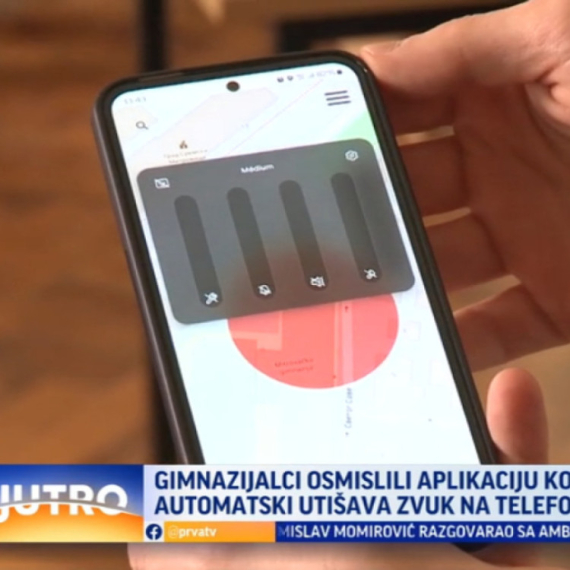


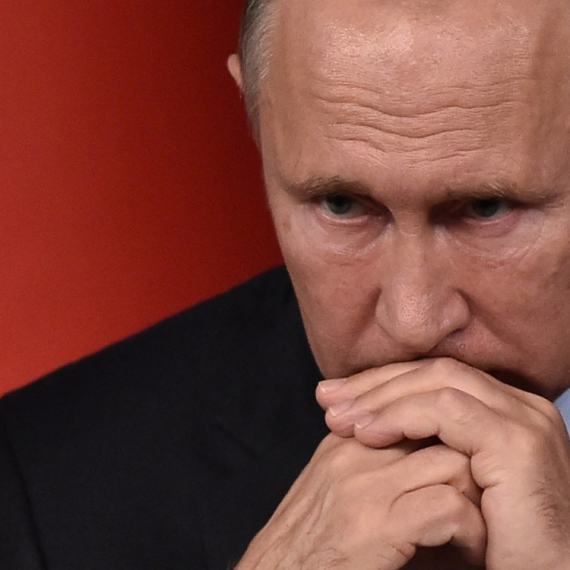

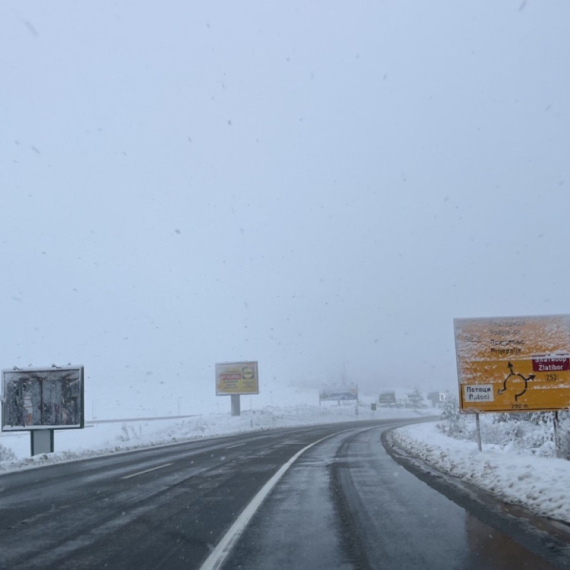

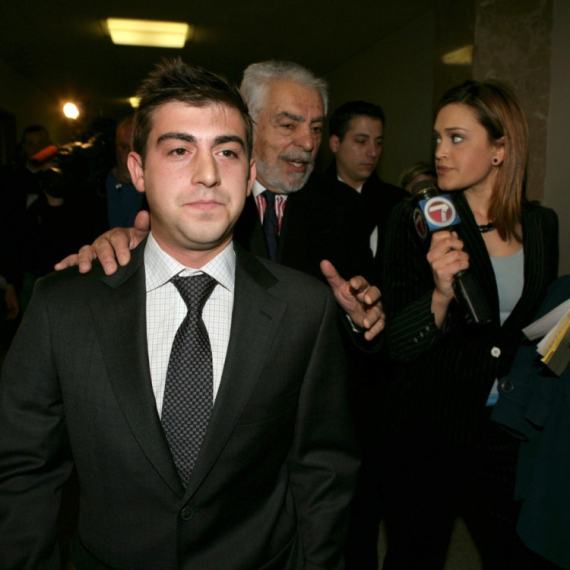





























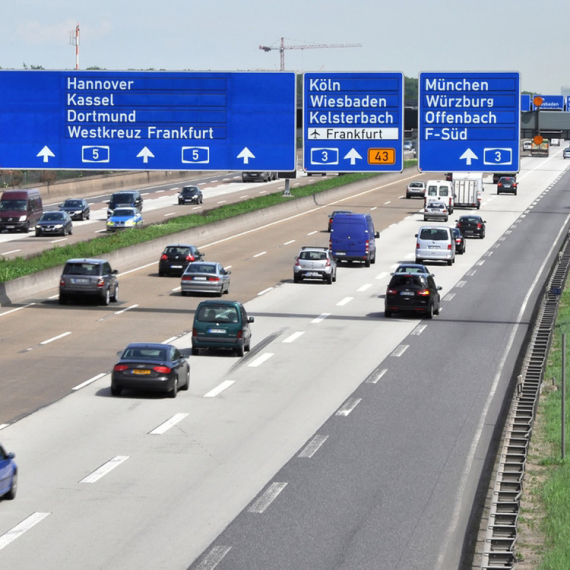





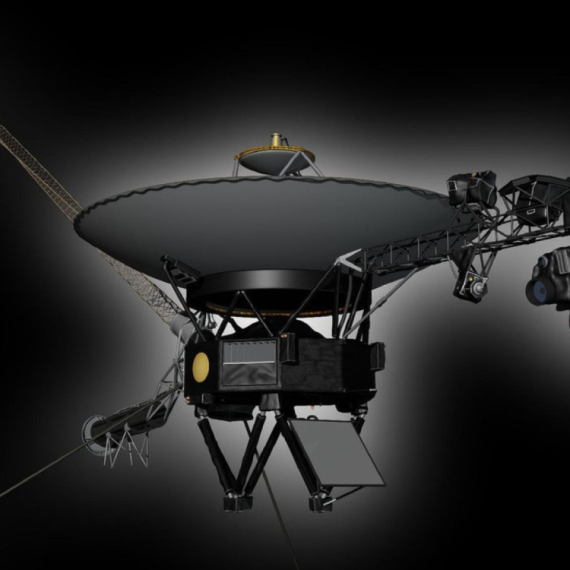


Komentari 1
Pogledaj komentare